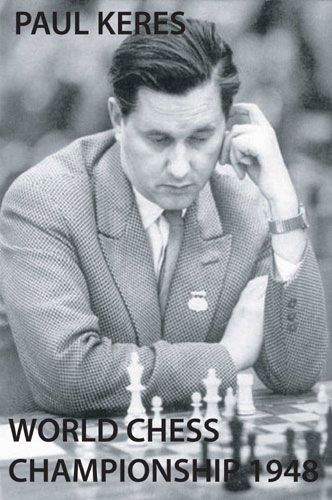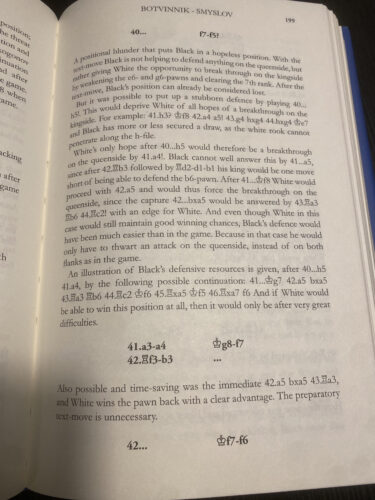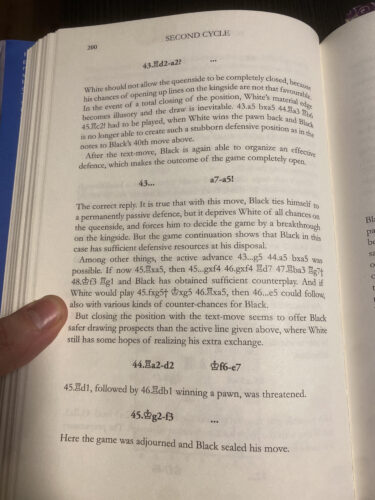Disclaimer 1: The following article contains several affiliate links to Amazon.com, meaning that if you go to Amazon and buy the recommended product (or some other product in an allotted period of time), the author of these lines will get a commission % from the purchase
Disclaimer 2: The following article is an excerpt from my article titled Best Chess Books 2022 in which I reviewed 20 chess books
Paul Keres: World Chess Championship 1948
In 1948, after the death of Alexander Alekhine left the chess throne vacant, a historic World Championship tournament was organized to determine his successor and the next world champion. Paul Keres, one of the strongest players never to become a World Champion, was one of the participants (together with Max Euwe, Vasily Smyslov, Samuel Reshevsky, and the ultimate winner, Mikhail Botvinnik). After the tournament, Keres spent several months analyzing the games and writing the tournament book. 1
Thus, this book features Keres’ round-by-round analysis and commentary of every single game played in that tournament. I found the level and amount of annotations quite remarkable. Almost every few moves, Keres offers his unique insights and opinions about different types of positions. Apart from the opportunity to hear the thoughts of such a legend of the game, I also found some of these comments quite instructive. Especially when they are referring to positional concepts or strategical themes, as I feel the difference in pure elementary understanding of the game between the old masters and modern grandmasters is not as pronounced as, say, opening knowledge or calculation ability.
Sure, as with almost all old books – the accuracy of analysis does not fully stand the test of time and the all-seeing-eye of the chess engines. But somehow, I didn’t find this aspect so bothersome with this book as, say, with Endgame Strategy. Maybe it is my bias for Keres, maybe it is the fact that this book is much more densely annotated or maybe I consider the accuracy of analysis more important in a book that is supposed to be an instructive manual and not a game collection.
The aspect of the book that didn’t appeal to me as much was the absence of any actual non-chess content, such as behind-the-scenes events, Keres’ own impressions and struggles, his experience with preparation, his impression of other players, etc. It is very understandable he wasn’t really willing to express too many opinions given the entire political climate and the context of the times, but I feel it is a great pity that the book lacks a little bit more personality. 2
Another drawback of Keres’ books is the usual problem of chess books – lack of diagrams which makes it very difficult to read the book without the board. This lack of diagrams is especially bothersome given that the book has extremely large font and margins, due to which a single game often spans across multiple pages. For example, take a look at the pages 199-200 of the book:
Last but not least – I am not really sure how instructive this book is purely from the „chess improvement” perspective. I do feel it might have something to offer to players up to a certain rating level, but in general, I regard it as a primarily historic, rather than instructive, work.
Thus, if you are looking for a nice game collection written by one of the strongest players of the time, this book might be for you!



